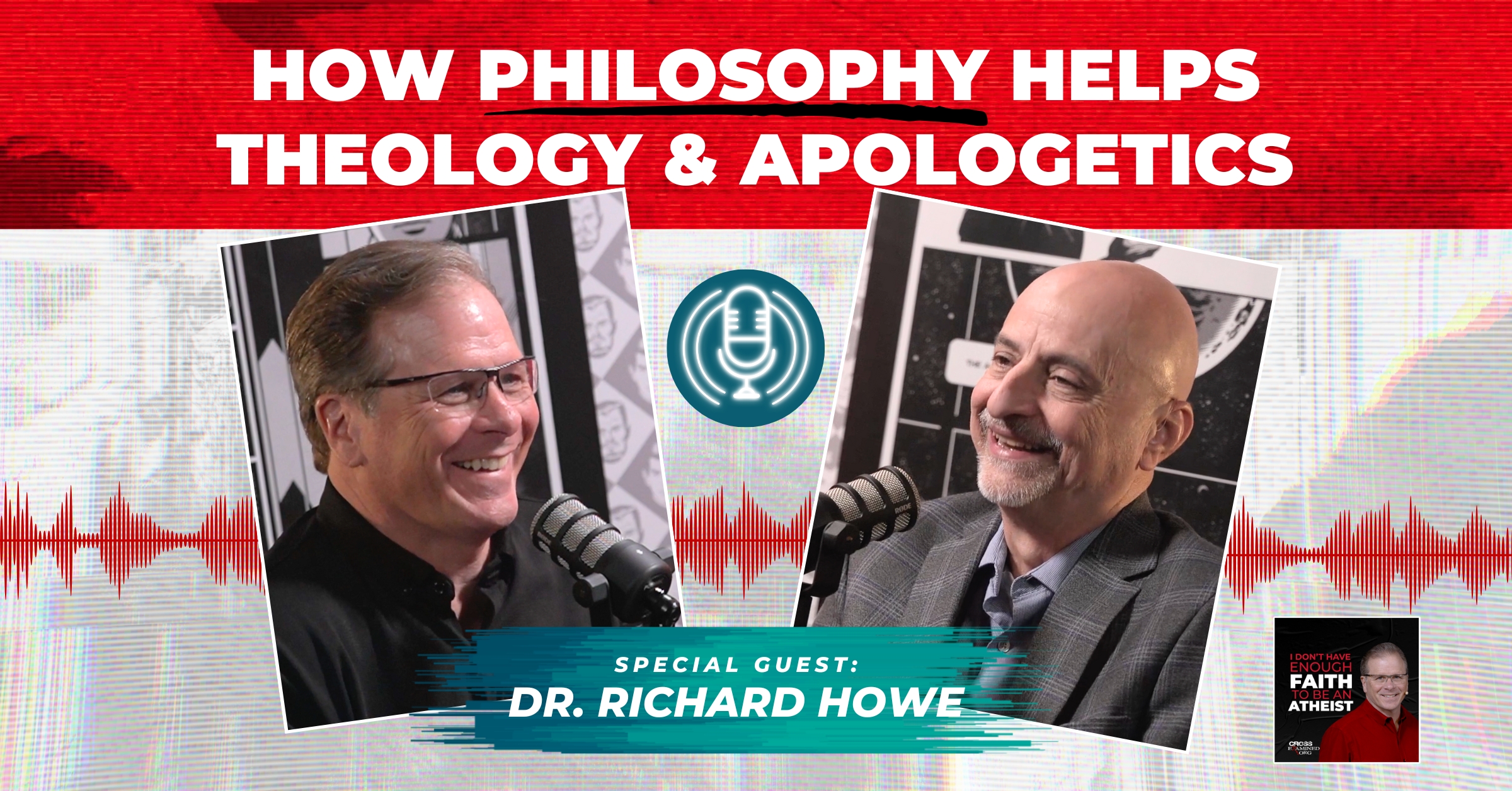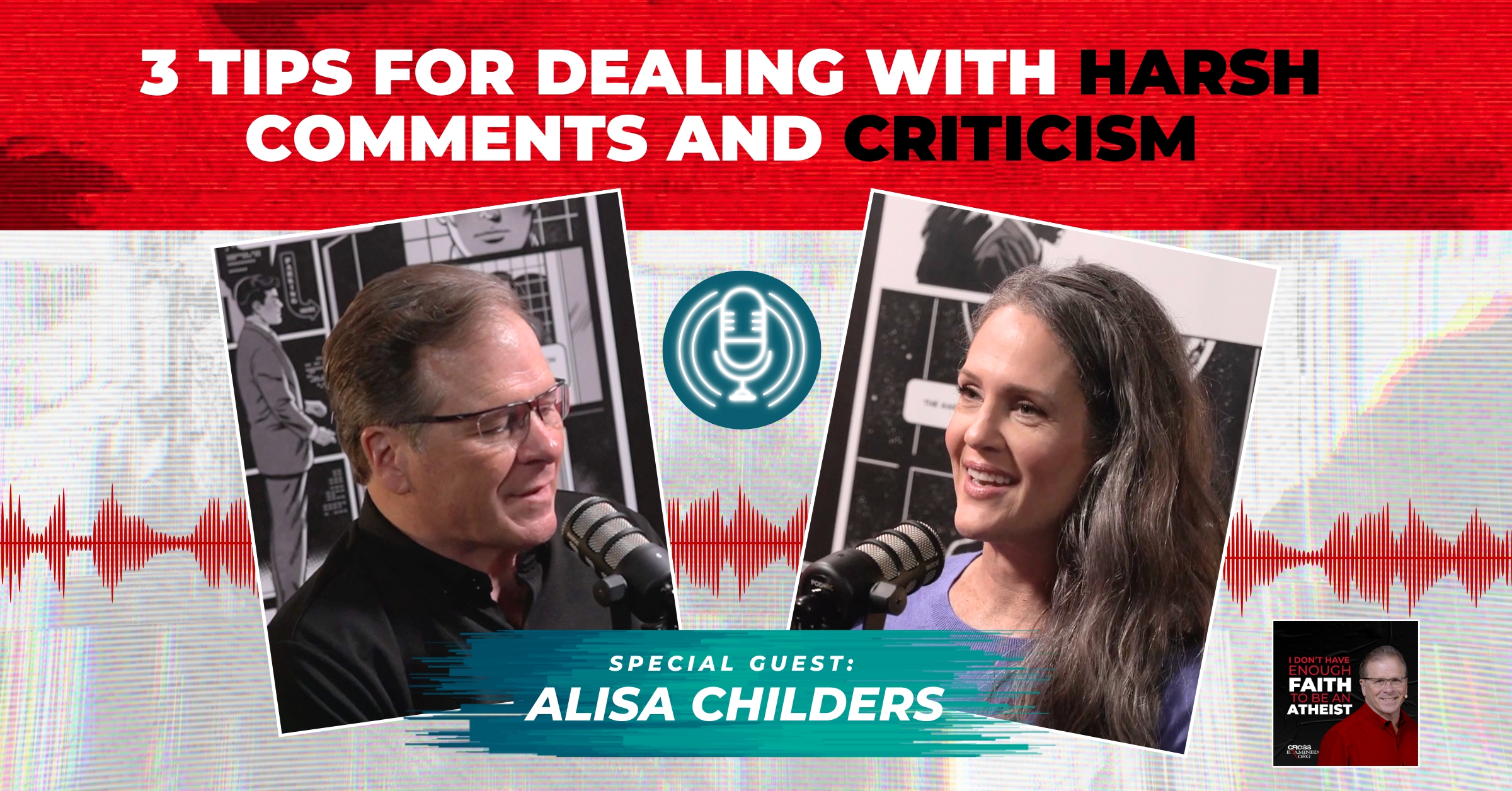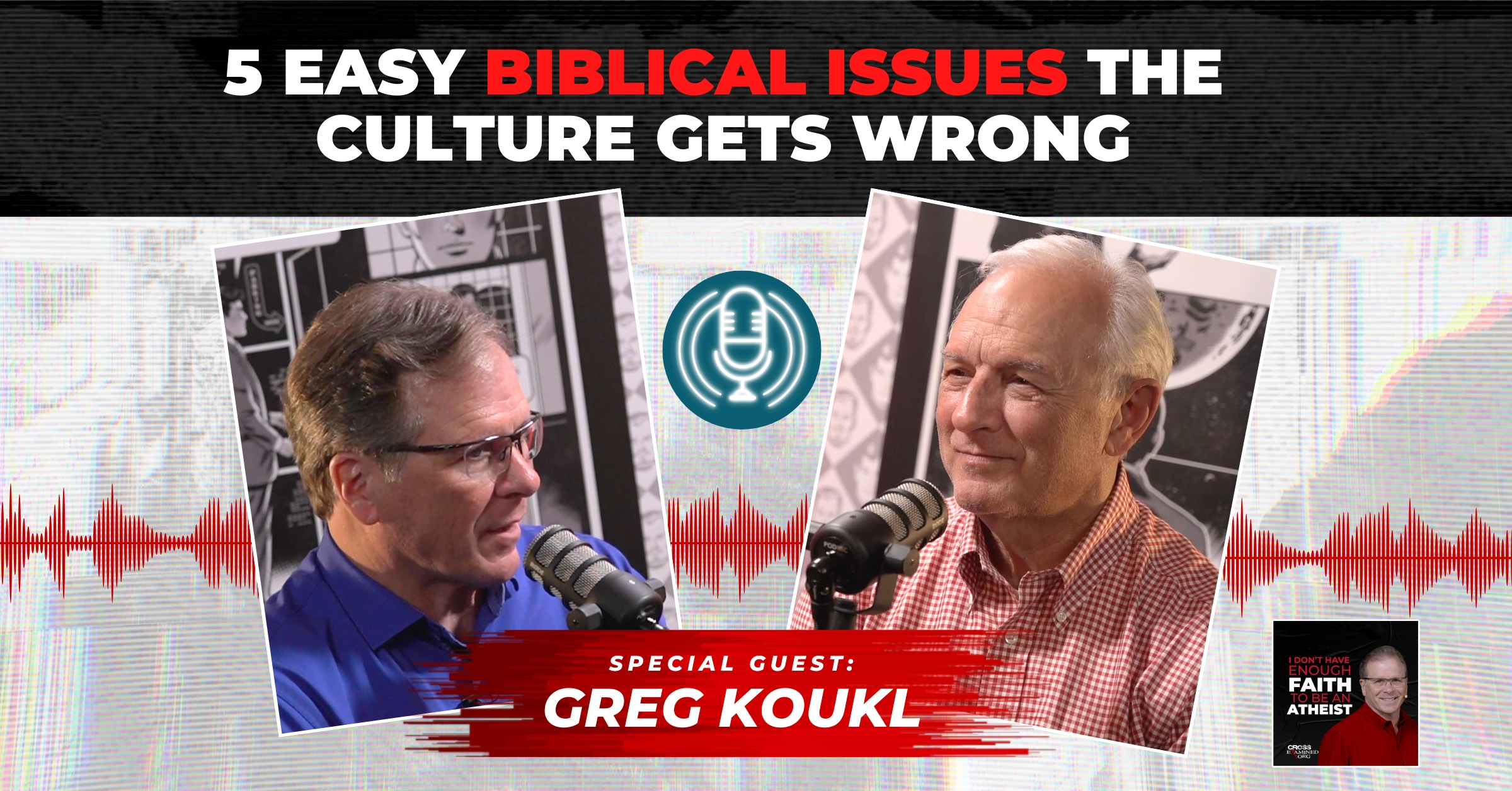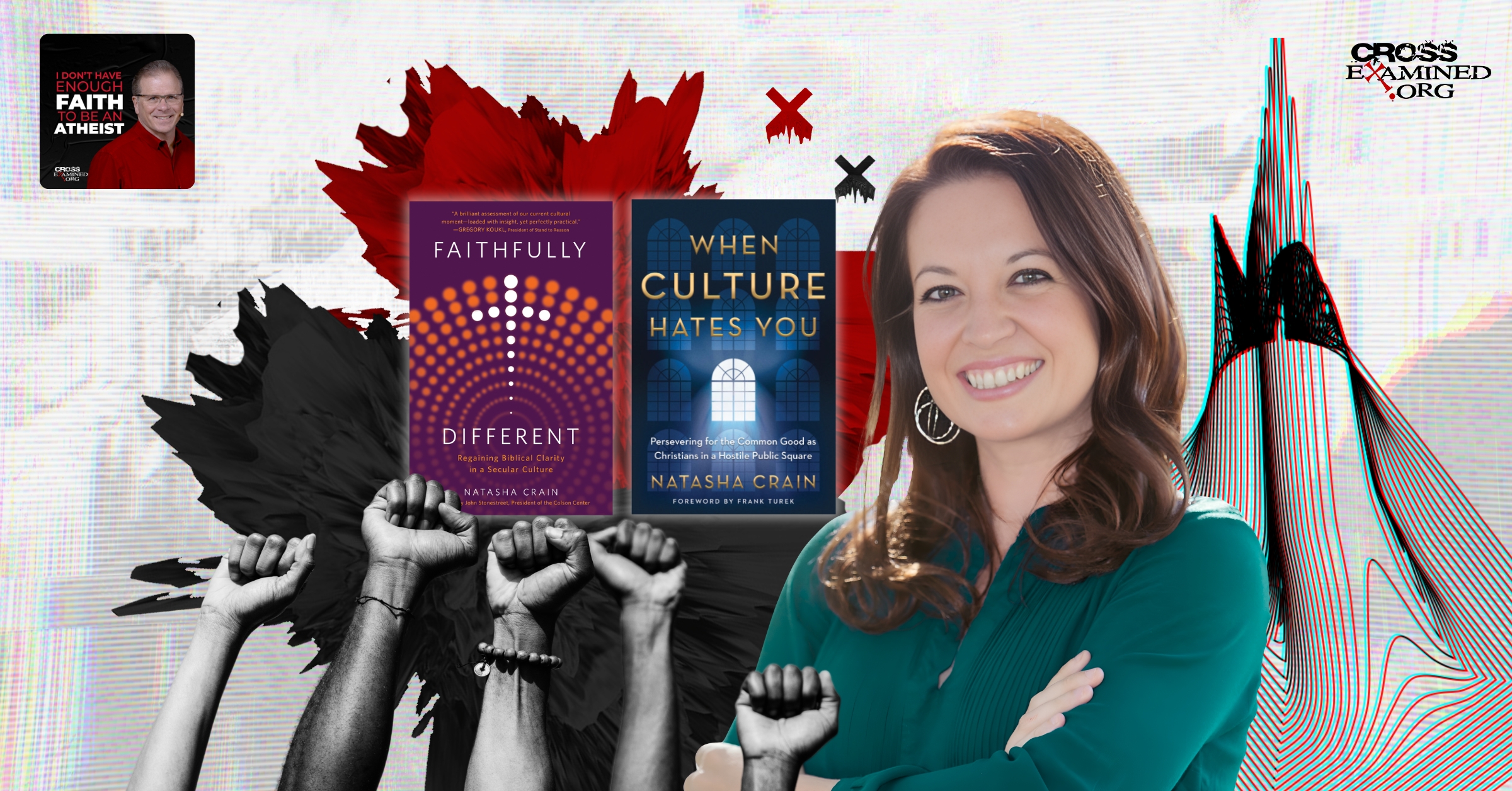All Christians should study apologetics. Christians should study apologetics may sound like a bold claim if you’ve barely even heard of apologetics, but I promise you apologetics has been the most important thing I’ve done for my faith besides reading my Bible regularly.
What is Apologetics?
Apologetics is a rational, organized defense of the Christian faith. It is the why behind the what we believe.
Apologetics has many different aspects. Some people study the timelines of events in the Bible. Astrophysicists study the universe and God’s hand in creation. Some apologists are philosophers who consider the rational reasoning behind having faith. Some are archaeologists who examine artifacts and geographical evidence that supports the Bible.
Apologetics has many different branches, but they all stem from the same tree of demonstrating the reasonableness of the Christian faith.
Reason 1 why all Christians should study apologetics – Because the Bible tells us to.
Most Christians know what we believe, but if someone were to ask why do you believe it, would you have an answer? Did you know the Bible tells us we should have an answer? “But in your hearts honor Christ the Lord as holy, always being prepared to make a defense to anyone who asks you for a reason for the hope that is in you; yet do it with gentleness and respect.” (1 Peter 3:15, ESV)
Christians have a hope within us that the rest of the world does not. We should be prepared to explain why we have this hope to anyone who asks. Studying apologetics helps us prepare this answer before we need to answer it.
Why should ALL Christians study apologetics? Because the world has never needed Jesus more than today. We need to be prepared to give an answer for the hope we have within us. #Apologetics CLICK TO TWEET
Reason 2 why all Christians should study apologetics is to shore up our own faith.
If we’re honest, most Christians have doubts occasionally. From time to time, we wonder is any of this real? Am I just hoping in something fictional? Like the father in Mark 9, I have cried out in the night for God to help my unbelief. “Immediately the father of the child cried out and said, “I believe; help my unbelief!” (Mark 9:24)
Most recently, when I was just feeling broken and despondent from the current cultural darkness, I begged God for help. I instantly felt I should call a friend I hadn’t talked to in almost a year. I kept pushing back that feeling, but that day she called me! She said she felt God telling her to call me.
Ok, God, I hear you! You see even those moments that I just need encouragement to keep fighting the darkness! But aren’t Christians supposed to have blind faith? Some Christians believe that our faith should be absolute and require no proof or it isn’t faith. Have you heard this argument before? I certainly had.
But “just believe!” rang horribly false when I heard atheist objections to the Bible’s accuracy or challenges to creation. I needed better answers than just blind faith!
I was so grateful to know that this isn’t the kind of faith God ever expected us to have. Faith was trusting in what we have reason to believe is true. If we look through the entirety of scriptures, we can see that God and Jesus used miracles at specific times to demonstrate their power and authority.
[below is a “click-to-tweet” link. If you can get it to work on the CE website then great – folks will be able to click it and directly tweet that quote from their own twitter account. If you can’t get it to work, then just convert it back into a blockquote]
Are Christians really supposed to have a Blind Faith? Read here to see what Jesus expected of those who followed Him. #Apologetics #ChristianApologetics #WomeninApologetics CLICK TO TWEET
In Luke 7, while John the Baptist is in jail awaiting his fate, he sends two of his followers to ask Jesus if He is the Messiah. John the Baptist was the first to recognize Jesus as the Messiah, and yet, he doubted. Does Jesus rebuke John? Tell him to just have faith? No. “In that hour he healed many people of diseases and plagues and evil spirits, and on many who were blind he bestowed sight.” (Luke 7:21)
He spends the next hour performing the exact types of miracles that the Old Testament prophets predicted the Messiah would do. And then commends John in front of the crowd, “I tell you, among those born of women none is greater than John.”
In John 10, some of the Jews listening to Jesus teach grow restless wanting to know if He is the Messiah. Jesus’s answer gives us hope today. Jesus answered them, “I told you, and you do not believe. The works that I do in my Father’s name bear witness about me” (John 10:25).
Jesus didn’t expect people to blindly hope in Him without cause. He expected His followers then and now to trust the signs and teachings that demonstrated His divine nature.
Reason 3 why all Christians should study Apologetics is to gain critical thinking skills.
We live in an internet age in which anyone can say anything. People make emotionally powerful statements or videos and the mobs cheer assent, often without thinking deeply about what they are cheering.
From studying apologetics, I have learned to think deeply about the meaning of words.
Challenging conversations have to start with some ground rules, like clear definitions of terms. If we are using the same words, but mean different things, conversations can go south quickly. For example, love is love sounds pithy and noble, but what is the definition of love here?
“Love is not affectionate feeling, but a steady wish for the loved person’s ultimate good as far as it can be obtained” ― C.S. Lewis
I doubt this is the kind of love meant by Love is Love. Studying apologetics made me more aware of linguistic theft (changing definitions of words to mean something new and often contradictory). Apologetics also taught me to think logically about the statements people make.
Listening to thousands of hours of apologetics podcasts, I’ve learned to see through logical fallacies and be able to make sound arguments for why I believe God exists and the Bible is truth.
Reason 4 why all Christians should study Apologetics is to learn sound doctrine.
While some aspects of apologetics strive to harmonize science with our faith or study the accuracy of the Bible, some apologists spend most of their time studying the doctrine of what we believe by studying the Bible.
I’ve learned to never read A Bible verse, but instead to study the context of a verse, look at the intended audience, consider the historical context, etc.
I’ve learned how to formulate answers for tough questions, like why do we believe Jesus had to die on the cross for our sins? Is it cosmic child abuse?
Through apologetics (and reading my Bible), I’ve learned to see how the thread of God’s redemptive promise flows through the entire Bible from the fall and the covenants with Abraham and Moses all the way to the End Times and Revelation. The requirements of the first passover in Egypt foreshadow Christ’s blood redeeming us from death. Christ’s death occurring on Passover during the ritual slaughter of lambs for the Jewish Passover meal was not an accident. It was God’s divine plan in His divine timing. I’ve learned to read my Bible better.
How do we know the will of God on an issue? We can study God’s response in similar situations, look for what He values, look at God’s definitions of love, justice, righteousness, etc.
If we find a verse that isn’t totally clear, how do we determine what it means? We look at other verses on the same topic that are clear. Always use the clearest verses to shore up our theology.
Learning to study the Bible for all it’s worth is one of the biggest joys I’ve gained from apologetics. One theologian/apologist/pastor, Mike Winger, has really taught me how to take an issue like marriage and research it through the entirety of scripture, not just the designated marriage passages.
I love feeling like I better understand the will and character of God. Living out my faith has become so much easier with sound theology.
[below is a “click-to-tweet” link. If you can get it to work on the CE website then great – folks will be able to click it and directly tweet that quote from their own twitter account. If you can’t get it to work, then just convert it back into a blockquote]
If you could share ideas or facts that help remove people’s objections to God and open their minds to belief, wouldn’t you want to??? Learn why and how here. #Evangelism #Apologetics #Christianity CLICK TO TWEET
Reason 5 why all Christians should study Apologetics is to share our faith.
Learning how to talk to people about God is the most important reason of all. If Jesus is the only way to salvation from sin and those who die in their sin will spend eternity separated from every grace of God, we need to be sharing our faith regularly.
Too many people in our lives are not living as saved children of God. We need to do our best to invite as many people as possible into a real saving relationship with God.
Some people will respond to the Gospel message alone, but most people will have questions. Apologetics will help you answer tough questions from friends and family.
- Is there any evidence for God?
- Why should I believe the Bible is accurate?
- Was Jesus even real?
- Why should I believe in the Resurrection?
- How can you believe there is only one way to God?
- Are other faiths true? What about Mormonism? Islam?
Having answers helps remove objections that prevent people from seeking Jesus. It can open their hearts and minds to faith in God. All of which goes back to the first reason, Christians should study apologetics to be prepared to give an answer for the hope we have in Christ.
Recommended Resources:
Jesus, You and the Essentials of Christianity by Frank Turek (INSTRUCTOR Study Guide), (STUDENT Study Guide), and (DVD)
I Don’t Have Enough Faith to Be an Atheist’ [FOUR unique curriculum levels for 2nd grade through to adult] by Frank Turek
Can All Religions Be True? mp3 by Frank Turek
How Philosophy Can Help Your Theology by Richard Howe (DVD Set, Mp3, and Mp4)
Jennifer DeFrates is a former English and Social Studies teacher turned homeschool mom and Christian blogger at Heavennotharvard.com and theMamapologist.com. Jennifer is a 2x CIA graduate (the Cross-Examined Instructors Academy) and volunteers with Mama Bear Apologetics. She has a passion for discipleship through apologetics. Her action figure would come with coffee and a stack of books. She is also the reluctant ringleader of a small menagerie in rural Alabama.
Originally Posted at: https://bit.ly/4cmcoTi












